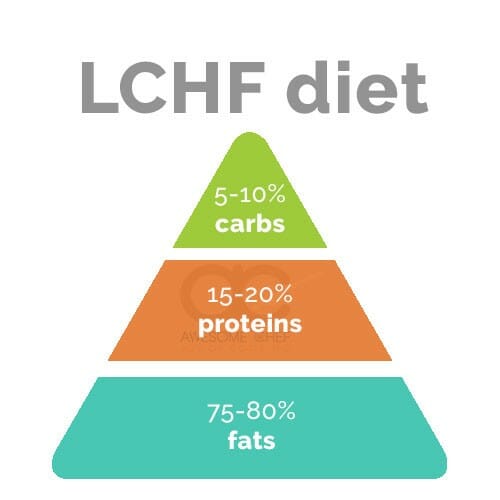We have a number of diet plans just like the enticing options in our platter, leaving us confused about which one to opt for. The Low Carbohydrate, High Fat (LCHF) diet is one such diet plan that’s gained popularity in the recent years. The low carbohydrates, high fat diet seems to be a huge hit among fitness buffs and is known to be very effective in shedding fat and maintaining good health.
We’ve got the answers to all your what, why and how by telling you everything about the LCHF diet plan.
As the name suggests, this is a diet where you reduce the intake of carbs and increase the intake of fat. You may wonder how an increased fat intake helps in fat loss. For the longest time we’ve been told to stay away from fats as they are considered to be the culprits in the accumulation of weight. The LCHF diet works in a simple mechanism where fat is the primary source that meets your energy requirements. When carbohydrates are gradually reduced, the body inevitably burns fats in the body for energy. This means, not only the fat you eat, but also the fat accumulated in your body gets used up in the process.
Table of Contents
Why low carbs?
Carbs has always been an important element in our menu and the pivotal source of energy. With our sedentary lifestyle, this is a huge mistake we commit, especially considering our ratio of refined carbs vs. natural cabs. When you don’t move your body enough and there is an excessive carbohydrate intake, the body uses only a small portion of the carbs to generate energy and the stores the remaining which in turn gets accumulated in the body in the form of fats stored in the liver and other organs. This leads to a spike in the insulin levels that, when unchecked over a period of time, eventually leads to diabetes and weight gain.
Simply put, if you move your body more and sweat everything out and ensure all the carbs and fats get burnt, you can indulge in carbs.
Healthy Vs. Refined Carbs
Not all Carbohydrates are the same. Carbs from sugar or refined flours, for instance, are way different than the carbs from vegetables. So, which one is better? The vegetables, of course! Simply because, along with carbohydrates and other micro nutrients, they also contain high amounts of fibre that ensure delayed absorption, cleaner gut, easy digestion and excretion. It’s therefore best to avoid any and all types of carbs that do not come from vegetables and whole grains.
What is the right proportion of carbs and fats?
There is no such thing called the ideal proportion. Typically, in an LCHF diet, the principle is to have at least 75% fats in a meal. Carbs can be reduced to 10-15% of the total meal and the remaining from proteins. If you are someone who leads an active lifestyle, rapid elimination of carbs will leave you feeling tired. So cutting down on refined carbs and choosing healthy ones while increasing your fat intake will be the first step.

LCHF Macro pyramid
What to eat and not eat
A high fat diet doesn’t mean you can hog on those dangerously fattening fats. Rather, switch to a larger portion of healthy fats from avocados, eggs, meat, poultry, dairy and coconut. Starchy foods are a big no-no. You have to cut potatoes, wheat, refined and factory products, sugar and sugar based products from your shopping list. Your pizzas, pastas and fries have to stay out of your diet. You instead include nuts, seeds and other high fat dairy like cheese in your diet. Our article Why Eating Fat doesn’t Make You FAT! talks about why natural fats are important and how it helps you.
Why is the LCHF diet good for you?
- Lowering carbs reduces insulin levels in the body that in turn stops storing the excess fat, which leads to loss of weight.
- Burning fat for fuelling the body and the intake of good cholesterol reduces the risk of any potential heart disease
- With lower insulin levels you are free from the risk of diabetes. If you have diabetes then following the LCHF diet normalises the blood sugar levels.
- The LCHF diet keeps your stomach happy by warding off stomach disorders like gastritis, indigestion and acidity.
- Improves the gut health and stabilized the hormones in the body.
- Increased intake of good fat reduces inflammation and regulates your blood pressure.
- A high fat diet reduces un-necessary cravings, cutting out habits like binge eating.
What to watch out for on this diet
The initial phase of this diet is the hardest. Dehydration, high thirst, fatigue and headaches are some of the problems you are bound to witness during the adaptation phase which you will eventually get over with, when one consumes copious amount of water, electrolytes and sticks to the diet.
Some people cannot tolerate an increased level of fat that in turn makes them sick. If you have lower levels of blood sugar or are someone who indulges in a lot of physical activity, then talk to a nutritionist and your doctor before you get onto the diet.
The most important thing to do while following this diet is to make sure you are getting all vital nutrients, primarily from vegetables with a few supplements based on the advice of your nutritionist, while you are cutting down carbs. Although the LCHF diet plan is proven to be effective, it’s not advisable to adopt the plan without your doctor’s approval. Consult with your general physician and nutritionist, talk to them and get to know if following the diet is right for you. Keep a constant eye on your health, tune in to your body’s needs and let it be your guide to health.
Talk to us to know how we can help you get healthy.